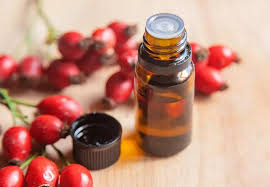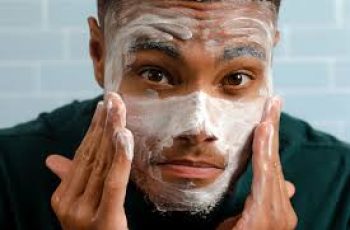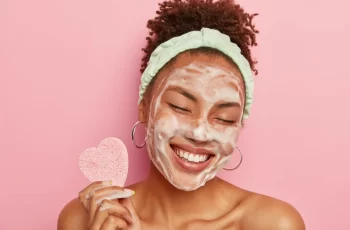
Rosehip Oil in Skin Care
Rosehip oil is an extract from the fruit of a specific species of rose, (Rosa Canina).
Rosehip oil is used in a number of skin care products and has been recognized as a safe and valuable ingredient in skin care for decades.
It is safe for use on the face or anywhere else on the skin, and is recommended for most skin types.
This article will help you learn all about rosehip oil and whether or not it’s right for your skin.
Is rosehip oil used in skin care?
Rosehip oil is a very common ingredient in skin care products. It is used for its versatility in many kinds of products such as:
Anti-aging creams
Cleansers
Concealers
Emollient creams
Moisturizers
Peels
Repair serums
Sunscreens
To find the right rosehip oil products for your skin type and custom skin care regimen, be sure to shop by your Baumann Skin Type!
Take the Quiz
Rosehip benefits
Rosehip benefits
Rosehip oil has many appreciable benefits in skin care and is used in a variety of product types. The diverse active compounds in rosehip oil serve many uses.
Anti-inflammatory compounds in rosehip oil such as linoleic acid are used to soothe many kinds of irritation related to dehydrated skin.
Anti-microbial compounds are also present in the oil, which are extremely helpful in eliminating acne causing bacteria on the skin. Anti-microbials are also good as preservatives in many products.
Loaded with antioxidants like vitamins C & E, the oil is effective in anti-aging treatments and sun damage routines for many skin types.
ingredients with a lot of vitamin E like rosehip oil are great for treating burns.
Most of the fatty acids present in rosehip oil are very effective moisturizing compounds, such as linolenic acids which assist in the body’s production of ceramides.
The oleic acid in rosehip aids in ingredient absorption by creating tiny perforations on the skin that other compounds can more easily pass through.
It is occlusive, good for keeping ingredients on the skin and modulating absorption based on how you layer your skin care products.
Since rosehip oil is made primarily of unsaturated fatty acids, it can be used in skin lightening products to treat dark spots.
Side effects
Rosehip oil has no significant side effects.
There have been no reports of toxicity, reproductive morphology, or irritation in studies of rosehip oil.
An allergy to rosehip oil, while extremely unlikely, is possible.
Be sure to always check skin care labels for your known allergens.
Is rosehip oil safe?
Rosehip is by all accounts very safe for use in skin care.
Rosehip oil has not been found to cause adverse reactions in research studies(10).
The EWG’s rating for rosehip oil is “1” which means they consider it risk free.
The CIR conducted a full review on rosehip oil, and in their report evidence suggests zero toxic, genetic, or otherwise morphological concerns when using rosehip oil.(12)
what is rosehip made of
What kind of oil is rosehip oil?
Rosehip oil is pressed from the fruit, seeds, and/or petals of the Rosa Canina plant.
This kind of oil is primarily composed of unsaturated fatty acids with a small concentration of saturated fatty acids as well.
As it is extracted from a flower, it could be confused to be an essential oil, though thick oils like these are often considered “carrier oils” instead.
Rose oil from the Rosa Damascena species is considered an essential oil.
Active compounds
Rosehip oil is composed of many beneficial fatty acids, flavonoids, and fatty alcohols that serve a variety of purposes in skin care (3).
By concentration, the most significant compound in rosehip oil is linoleic acid, which soothes inflammation and is a moisturizing fatty acid.
Since linoleic acid is such a beneficial fatty acid, many oils with high concentrations of it are used in skin care, such as:
Borage seed
Evening primrose
Safflower
Sunflower
Alpha-linolenic acid is also present in rosehip oil. Alpha-linolenic acid promotes ceramide production in the skin, which are essential compounds in moisturizing treatments.
Other fatty acids in rosehip oil are oleic, palmitic, and lauric acids.
A significant fatty alcohol in rosehip oil is alpha-tocopherol (vitamin E), a compound with great antioxidant properties.
there is also a large amount of ascorbic acid (vitamin c) in rosehip oil which is effective in the treatment of wrinkles, among other beneficial properties.
rosehip for specific conditions
Rosehip for common conditions
Take the Quiz
For dry skin types and conditions
Rosehip oil might be good for your dry skin, depending the severity of dryness.
It contains a very high concentration of soothing linoleic acids which treat inflammation and hydrate the skin.
Though low in concentration, rosehip oil contains some oleic acid which is not the best compound for extremely dry skin types.
People with eczema might look to avoid using oils with oleic acid in them as a general rule, so rosehip oil might not be perfect for you if you have eczema.
In many cases, high linoleic acid content is enough to counter the effects of oleic acid, so whether it is right for your dry skin depends on your personal dry skin regimen.
Psoriasis similarly does not react very favorably to oleic acid, though depending on your custom skin care regimen, rosehip oil might be good for your psoriasis routine. Rosehip has been shown to aid in scar and wound healing, which are important factors in ingredients that treat psoriasis.
If you do not have a specific dry skin condition, rosehip oil can be a great addition to most skin care regimens. Here are some of my favorite dry skin products containing rosehip oil:
Wrinkles
Rosehip oil contains a number of active antioxidants, which eliminate free radical ions on the skin that contribute to skin aging (8).
It is best used in combination with more powerful anti-aging ingredients like retinoids.
It can take multiple months to see results from your anti-aging regimen, so be patient and stick to your custom skin care routine for the best results! Here are some of my favorite anti-aging products with rosehip oil:
Acne
Rosehip oil is great for use in acne products because it eliminates acne causing bacteria on the surface of the skin.(7)
Another reason it is good for use with acne is because it is non-comedogenic, meaning it does not clog pores like many other oils do in skin care (5).
Ingredients that eliminate acne causing bacteria while leaving pores clear are generally great for use in acne products.
Many oils are not great for acne prone skin types, so make sure you’re aware of what causes clogged pores and what kinds of ingredients commonly cause acne. Here are some acne products containing rosehip oil:
Scars
Rosehip oil has been shown to greatly assist in the healing of wounds and reducing of scar tissue.
Though more research needs to be done to determine the exact interactions between rosehip oil and scar tissue, it is believed that some of the active fatty alcohols in rosehip oil speed up the processes of certain macrophages, preventing skin cells from changing into thicker scar tissue(2).
It is commonly believed that vitamin E is responsible for healing and preventing scar tissue, but other studies have found vitamin E not to be the answer(1).
Skin Lightening
Rosehip oil is a weak tyrosinase inhibitor because it is composed primarily of unsaturated fats.
Weak tyrosinase inhibitors interfere with the skin’s production of melanin, the pigment that changes skin color.
On its own, rosehip oil is not likely to make a noticeable difference in hyperpigmentation conditions like melasma or PIH.
It is usually used alongside additional skin lighteners like PAR-2 blockers or stronger tyrosinase inhibitors like resorcinol.
It can take a few months for skin lightening regimens to show significant results.Here is great skin lightening product containing rosehip oil:
Thanks for reading this blog on rosehip oil in skin care! I hope you feel more informed and in control of your skin health! If you haven’t already, take our skin typing quiz to find your Baumann Skin Type for free today!


